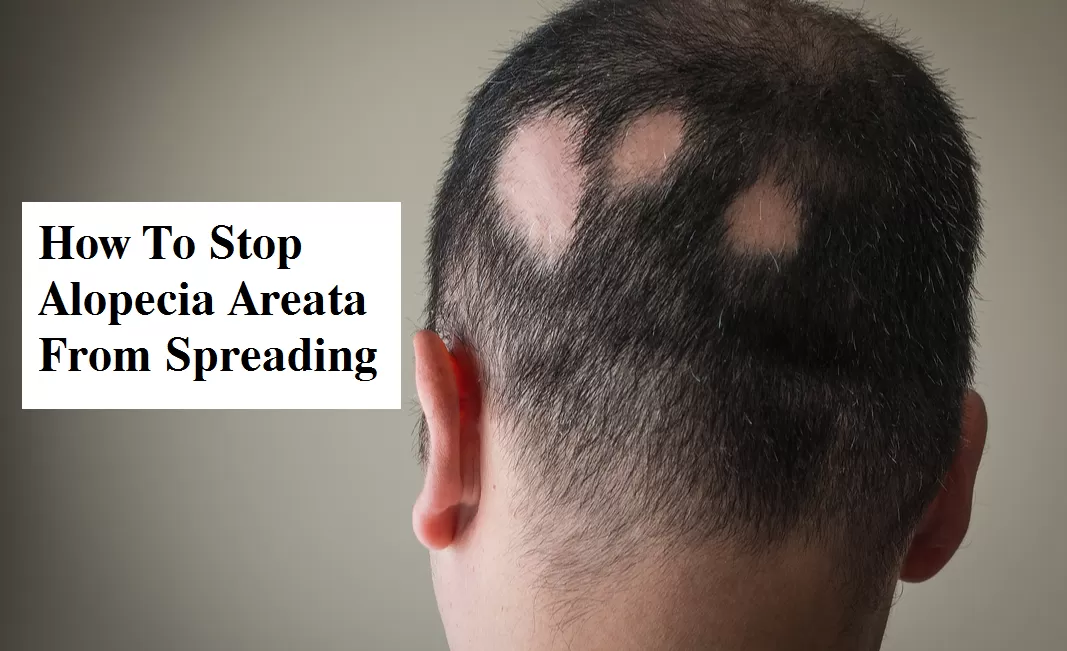How To Stop Alopecia Areata From Spreading
Alopecia areata is a disease that affects the hair follicles, causing hair loss in patches. It is an autoimmune disorder where the immune system attacks hair follicles mistakenly, leading to baldness. The exact cause of this condition is still unknown, but genetics and environmental factors play a significant role. It can affect people of any age, gender, or ethnicity.
Alopecia areata does not spread from person to person, like contagious diseases such as flu or colds. However, it can spread from one part of your body to another or even to others through sharing personal items such as combs, hats, and pillows. To prevent its spread, avoid sharing personal items with infected individuals.
To stop alopecia areata from spreading further on your body, seek medical attention when you notice symptoms such as bald spots on your scalp or beard area. Your doctor may prescribe corticosteroids to suppress the immune system’s response against hair follicles and promote hair growth. Additionally, adopting a healthy lifestyle by eating nutritious foods and managing stress levels also helps reduce the risk of developing alopecia areata in the first place.
how to prevent hair loss
Alopecia areata is an autoimmune disease resulting in hair loss on the scalp and other body parts. The exact cause of alopecia areata is unknown, but it is believed to be triggered by a combination of genetic and environmental factors. While there is no cure for alopecia areata, there are several measures you can take to prevent it from spreading.
Firstly, reduce stress levels as much as possible since stress has been known to trigger hair loss in some people. Secondly, avoid using harsh chemicals on your hair, such as dyes and bleach, that can weaken the roots and make them more susceptible to falling out. Additionally, it’s important to maintain a healthy diet rich in vitamins and minerals that promote hair growth, such as iron, zinc, and biotin.
Finally, consult a dermatologist who may recommend treatment options like corticosteroid injections or topical immunotherapy, which have effectively treated alopecia areata. With these preventative measures and professional guidance from dermatologists, you can successfully manage alopecia areata symptoms without further spread or complications.
How to treat dandruff
Dandruff can be a frustrating and embarrassing problem. Fortunately, several effective treatments can help alleviate symptoms and prevent dandruff from returning. One of the most common dandruff treatments is an anti-dandruff shampoo. Look for shampoos that contain active ingredients like ketoconazole, selenium sulfide, or zinc pyrithione, which can combat the fungus that causes dandruff.
Another effective treatment for dandruff is coconut oil. Research has shown that applying coconut oil to the scalp before washing with shampoo can significantly improve symptoms of dandruff. The fatty acids in coconut oil have natural antifungal properties, making it an ideal treatment for this condition.
In addition to using medicated shampoos and natural remedies, maintaining good hair hygiene habits can help prevent dandruff from spreading. Regularly washing your hair with a gentle shampoo and avoiding harsh styling products like gels or hairspray can reduce irritation on the scalp and keep flakes at bay.
What are some ways to stop Alopecia Areata from spreading?
One of the most effective ways to stop Alopecia Areata from spreading is through corticosteroid injections. These injections are administered directly into the affected areas and work by reducing inflammation and suppressing the immune system response that triggers hair loss. However, it’s important to note that this treatment may not be suitable for everyone and should only be done by a qualified medical professional.
Another way to prevent alopecia areata from spreading is by managing stress levels. Stress has been found to trigger hair loss in some individuals with this condition significantly. Therefore, finding healthy ways to manage stress, such as exercise, meditation, or therapy, can help reduce its impact on your overall health and well-being.
In addition, maintaining a healthy diet and lifestyle can also help improve your chances of preventing Alopecia Areata from spreading. It includes a balanced diet rich in vitamins and minerals such as iron, zinc, and vitamins C and B, essential for healthy hair growth. Regular exercise combined with adequate sleep can also promote overall health, which may aid in preventing further hair loss caused by Alopecia Areata.
What are some common triggers?
When it comes to alopecia areata, several common triggers can cause the condition to worsen or spread. Stress is a major trigger for this autoimmune disorder, as it can weaken the immune system and lead to an attack on hair follicles. In addition, hormonal changes, like those that occur during pregnancy or menopause, can also trigger alopecia areata.
Another common trigger of alopecia areata is genetics. If you have a family history of the condition, you may be more likely to develop it yourself. Certain medical conditions like thyroid disease or lupus can also make you more susceptible to developing alopecia areata.
To prevent the spread of alopecia areata and promote hair regrowth, it’s important to identify and address these triggering factors. It may involve practicing stress-reducing techniques like meditation or yoga, seeking treatment for underlying medical conditions, and using specialized hair care products designed for individuals with thinning hair. With proper care and management strategies in place, it’s possible to minimize the impact of alopecia areata on your life and maintain healthy hair growth over time.
FAQs
What causes alopecia areata?
Alopecia areata is an autoimmune disorder where the body’s immune system attacks hair follicles, causing hair loss. Researchers believe that genetics may play a role in its development.
Is there any cure for alopecia areata?
There is no cure for alopecia areata, but some treatments, such as corticosteroids and immunosuppressants, can help manage its symptoms.
Can stress trigger or worsen alopecia areata?
Stress is not a direct cause of alopecia areata, but it can exacerbate symptoms in some individuals.
It’s important to consult with a healthcare professional if you’re experiencing hair loss due to alopecia areata. They can provide tailored advice on managing your symptoms and preventing the further spread of the condition.










